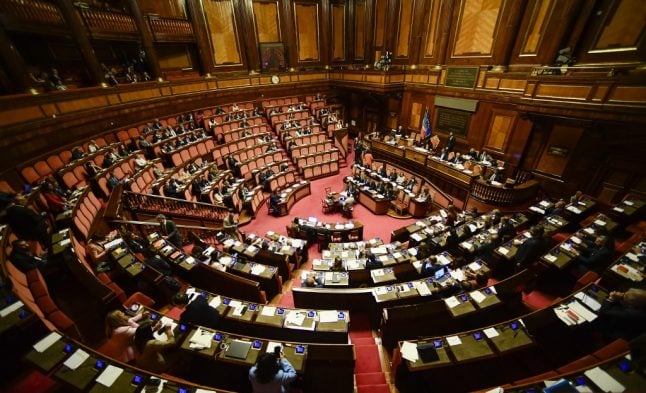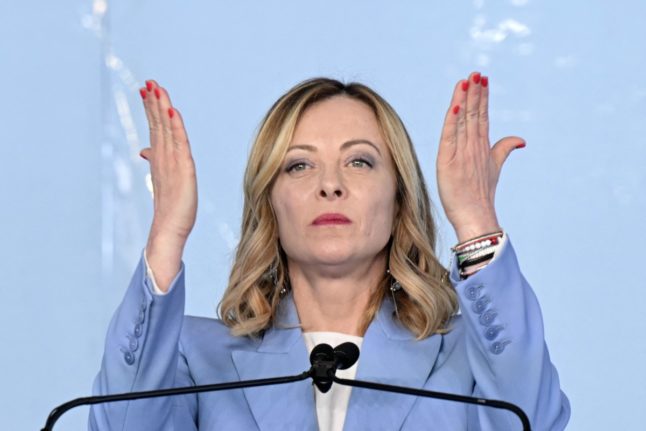Slashing the total number of MPs and senators in Italy by 345 – more than a third – was a flagship manifesto promise of the anti-establishment Five Star Movement, which is now in power as part of a coalition government, and has promised voters it would tackle political elitism and wasteful spending.
READ ALSO:
The cut – dubbed the “taglia poltrone” by Italian media – would reduce the number of MPs to 400 and senators to 200 from the next legislature, with an expected saving of some 100 million euros ($110 million) a year.
“It's a well-balanced reform with an excellent profile,” legal expert Guido Neppi Modona told Il Fatto Quotidiano on Monday.
A reduced number of lawmakers will “lead parties to take particular care in choosing candidates,” he said.
Italy's current left-leaning government also hopes the planned constitutional reforms, which also include changes to electoral law, could help keep the populist right from power.

Italy's chamber of deputies in September 2019. Photo: Andreas Solaro/AFP
Critics have warned however that the cut could affect popular representation, and increase the influence of lobbyists over governing institutions – all for a minimal saving that will have little effect on debt-laden Italy's book balance.
Italy currently has one of the highest numbers of lawmakers in the EU – some 630 elected representatives in the lower house and 315 in the Senate.
Italy also has the third-highest number of lawmakers in the world, after China, which has nearly 3,000 members of parliament, and the UK, with a total of 1,443 (793 of which are unelected members of the House of Lords, or upper house).
On Monday, the chamber of deputies was almost empty as only 35 MPs turned up for a debate ahead of the vote, the Corriere della Sera reported.
This is Italy's eighth attempt to cut its number lawmakers since 1983, according to the Open news website.
This time it is broadly expected to be successful, with most opposition parties on board – though the head of Italy's far-right League Matteo Salvini warned on Friday that his party may not vote in favour of the cut.
Five Star (M5S) made the cut a condition of its alliance with the centre-left Democratic Party (PD), following the collapse of its previous coalition with Salvini's League in August.

Five Star Movement leader and Foreign Minister Luigi di Maio in the chamber of deputies last month. Photo: Andreas Solaro/AFP
The PD, long a target of M5S jibes about “establishment” politics, had previously voted against the reduction, but has now agreed to support it in order to clinch a deal to form a government with the M5S.
The party has insisted the cut be followed by a new electoral law, and is pushing for the reintroduction of a proportional representation system
Under the current mix of proportional representation and first-past-the-post, a winning coalition needs more than 40 percent of the vote to have the necessary parliamentary majority.
With full proportional representation, parties or coalitions would need a much bigger majority to form a government.
That would make it more diffcultSalvini to win in future elctions if he chose to run alone or with a small fellow far-right party, and force him instead to turn to former prime minister Silvio Berlusconi's centre-right Forza Italy party for help, the weekly L'Espresso said.
Lorenzo Codogno, former chief economist at the Italian Treasury Department, told AFP the pressing need to change the electoral law could serve as glue to hold the coalition government together.
He warned however that “I have a feeling that (the electoral law) won't happen very soon”.
International markets and European investors watching the stability of the new coalition were right “to worry about everything,” he said.
READ ALSO: Four key economic challenges facing Italy's new government



 Please whitelist us to continue reading.
Please whitelist us to continue reading.
Member comments